Poor
POPE FRANCIS HAS created a new environment in the church. Beginning with asking all the people in St. Peter’s Square to bless him, living in a humble apartment and not the papal palace, placing his own phone calls, paying his own bills, giving simple daily homilies, having conversations with many people, and joyfully mingling with people: These all characterize an incredibly different pope. What has been even more attractive about Pope Francis than his style has been what he has said.
Pope Francis is clearly not on a mission to preserve the status quo. He’s been outspoken about the need for change in the world and in the church. In this he has not been a “professional denouncer.” Rather, he always contrasts what needs to change with the opportunity to be so much more than we are now. Whether it is oppressive global economic policy or clerical ambition, Pope Francis points out that we are called to something more noble and satisfying. The call of Christ is to be our best self. Francis reminds us, “God always forgives. Don’t forget this. God always forgives.”
Another striking aspect of Pope Francis is his constant and passionate concern for people who are poor and vulnerable and his reminder of our responsibilities to them. Whether he is talking to world leaders, bishops, or general audiences, his love of poor people and his firsthand knowledge of their challenges and how we should respond is profound.
RIGHT FROM THE beginning, John Carr saw Pope Francis as a “great sign of hope.”
Carr, who spent more than two decades as the U.S. bishops’ top peace and justice officer, was home, working at his kitchen table, when the white smoke came up announcing the selection of the new pope. “I thought, ‘Oh, my,’ and this guy I didn’t recognize came out,” Carr said. “When he said the name ‘Francis,’ I thought ‘it’s going to be okay.’”
As executive director of the Department of Justice, Peace, and Human Development at the U.S. Catholic bishops’ conference, Carr carried a rather large portfolio. He often tells the story of being introduced by a man who said, “He’s in charge of social development and world peace.” The man’s wife, in Carr’s telling, looked at him and said, “You need to do a better job.”
Since leaving the bishops’ staff last year, Carr has launched a new initiative, based at Georgetown University, aimed at helping lay people “become more informed and engaged in their vocation to be ‘salt, light, and leaven’” in public life. Carr, who visited Sojourners’ office this spring, is encouraged that the election of Pope Francis “has provided incredible visibility, urgency, and passion” around social issues. “When he was going to be elected, his friend said, ‘Don’t forget the poor,’” Carr explained. “A church that moves to the edge to care for the weak and vulnerable is a church you want to be a part of.”

For Catholics—and many others—what happens in Rome doesn’t stay in Rome. The seating of a new pope has the power to affect believers across the globe, in ways direct, indirect, and unpredictable. And when a surprising sea change occurs in a hide-bound, steeped-in-tradition place like the Vatican—the unexpected resignation of a pope, the selection of a Jesuit from the Americas as his replacement, and the powerful symbolism of a new leader who literally stoops to wash a Muslim woman’s feet—people of faith of all traditions sit up and take notice.
In these early days of Francis’ papacy, we asked three prominent Catholic thinkers and leaders to help us understand what it all might mean. How will the spirit of reform that has marked Pope Francis’ first few months in office affect the worldwide church? Will change at the top trickle down to parishes and neighborhoods here in the United States and elsewhere? And what will Francis’ leadership mean not only for Catholics, but for all people of faith engaged in the work of making justice and building peace? —The Editors
CATHOLICS AROUND THE WORLD are transfixed by Pope Francis. We love his simplicity of life, his humble faith, his welcoming attitude to all, and his way of being Christian in the contemporary world that takes its bearings from the poor. Lace and gilt are no longer fashion statements at the Vatican. From his small apartment, the pope speaks bluntly about worrying less about rules and more about love. An utterly refreshing breeze blows through the Catholic Church.
But what does it really mean for Catholics today? The church still reels with the moral and spiritual damage done by members of the clergy as perpetrators or accomplices in the sex abuse scandals, from fiscal mismanagement, and from institutional infighting. Does Pope Francis change that? And what does the new pope signify for the young, for women, and for the many issues that vex the church’s engagement in today’s world?
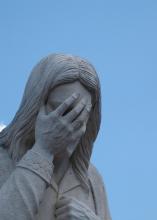
In response to my last article, “ 10 Things You Can't Do While Following Jesus,” I was accused multiple times of being political. All I was trying to do was follow Jesus. So, I thought it'd be interesting (and generate tons more hate mail) to show what a list would actually look like if I were being political intentionally. Like the first list, this is not a complete list, but it's a pretty good place to start.
There will be those who comment and send me messages berating me for “making Jesus political.” It's OK. Fire away. Jesus didn't worry much about stepping on political toes, and the Bible insists that governments be just toward the least of these (the books of the prophets alone make this point very clear). Frequently, people who are the most vocal about not making Jesus political are the same people who want prayer in school and laws based on their own religious perspectives. By a happy little circumstance that brings us to my list:
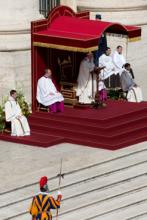
Pope Francis on Wednesday denounced consumerism and what he called the “culture of waste” of modern economies, especially when it comes to food.
“Throwing away food is like stealing from the table of those who are poor and hungry,” he said during his weekly audience in St. Peter’s Square.
His words came on the day the United Nations launched an anti-food waste campaign to mark World Environment Day.
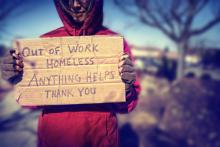
There should be no poor among you - Deuteronomy 15:4
This is one of the few commands virtually all religious people easily – even eagerly – follow.
We just do it our own way.
The biblical and cultural context and overriding assumption is that those of us with means should contribute – willingly and without conditions – to those among us who, for whatever reason, are needy.
We are not to judge – or distance ourselves – from those who have little – or cannot pay us back. In fact these are the ones Jesus commands that we – and by extension he – should invite to a banquet (Luke 14:12-14).
But we seem to have ‘no poor among us’ – we do our best to exclude, ignore, or even ban them when we do see them.

What comes into your mind when you hear the word apocalypse? Most of us think of us think of the total destruction of the world, or at least life as we know it. Think zombies roaming the streets, feasting on brains. On the other hand, my sarcastic generation is doing a pretty good job of using apocalypse as a silly word. I remember a few years ago when we had a large winter storm here in Washington, D.C.; it was instantly dubbed Snowpocalypse!
The English word apocalypse derives from the ancient Greek apocalupsis, which is the original title for the infamous Book of Revelation. Revelation involves a lot of fire, smoke, battles, and things generally blowing up, so it’s understandable that today we would associate apocalypse with end-times battles. However, the word apocalypse contains a much deeper meaning. Far more profound than the long-awaited zombie hordes – or even the end-times prophecies of some churchgoers – this ancient, misunderstood word is an essential tool for comprehending the world we live in.
Apocalupsis is a term that means unveiling – as in setting aside a covering to discover what lies underneath. At the most basic level, the Book of Revelation is about removing the blindfold that the Powers have pulled over our eyes, allowing us to see the world as it really is. Revelation is about unveiling Empire, exposing the ways in which powerful interests destroy the earth and enslave other human beings to promote their own luxury and power. Despite its reputation, Revelation is not about a future-oriented, earth-hating vision of universal destruction. On the contrary, it is a vision of a new creation and universal restoration – the world finally set right and edenic harmony restored in the midst of the city.
OK – great, you may be saying. Nice to know, but how is this relevant to me?
Fair question. It’s true that the Book of Revelation was written almost 2,000 years ago. Those were the days of the Roman Empire – think Ben Hur and Spartacus. For sure, things have changed a lot since then.
Yet, the more things change, the more they stay the same.
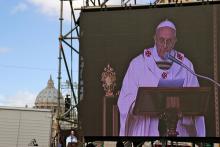
Vatican employees won’t receive the special bonus they are traditionally awarded when a new pope is elected, the Vatican confirmed on Thursday, under orders from Pope Francis to give extra money to charity instead.
“On account of the difficult situation of the general economy, it seemed neither possible nor opportune to burden Vatican institutions with a considerable unforeseen extraordinary expense,” the Vatican’s chief spokesman, the Rev. Federico Lombardi, said in an emailed statement.
In place of the employees’ bonus, Pope Francis ordered Vatican officials to make a donation to some “charitable organizations.”
The money will be drawn from the pontiff’s personal charity budget “as a sign of the church’s attention for the many people who are suffering” from the global economic slowdown, Lombardi said.

During this Holy Week, Christians around the world turn inward to reflect on the mystery and miracle of the death and resurrection of our Lord, Jesus Christ. Those two surpassing events are more than good enough to occupy the mind and heart of every believer.
But they are not all that Jesus did in these eventful days. As any student of the scriptures will know, Jesus did not go quietly to the cross. Three days before his execution, he stormed the temple and challenged the seat of theocratic power in Jerusalem, condemning the pharisaic elite who "preach, but do not practice" and "tie up heavy burdens, hard to bear, and lay them on the people's shoulders." (Matt. 23:3-4) He accused as hypocrites leaders who make token offerings yet "have neglected the weightier matters of the law: justice and mercy and faithfulness … Inside they are full of greed and self-indulgence." (Matt. 23:23,25)
In his final teaching before the events of Maundy Thursday and Good Friday began, Jesus embraced those who are oppressed and cautioned his disciples that acts of love and mercy are the measure of a heart touched by grace. "For I was hungry and you gave me food, I was thirsty and you gave me drink, I was a stranger and you welcomed me, I was naked and you clothed me, I was sick and you visited me, I was in prison and you came to me … Truly, I say to you, as you did it to one of the least of these my brothers, you did it to me." (Matt. 25:35-40)
In honor of the occasion, Congress will close its doors and lawmakers will head home to be with their constituents for the Easter recess. If inside reports are to be trusted, they will leave Washington "armed with excuses" that explain away the latest fiscal fiasco, and the people will have little to say in reply. I pray it isn't so.
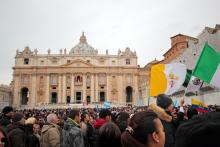
Editor's Note: Pope Francis delivered the following homily at his inaugural Mass on Tuesday, emphasizing the need to protect the poor and the environment.
Dear Brothers and Sisters,
I thank the Lord that I can celebrate this Holy Mass for the inauguration of my Petrine ministry on the solemnity of Saint Joseph, the spouse of the Virgin Mary and the patron of the universal Church. It is a significant coincidence, and it is also the name-day of my venerable predecessor: we are close to him with our prayers, full of affection and gratitude.
I offer a warm greeting to my brother cardinals and bishops, the priests, deacons, men and women religious, and all the lay faithful. I thank the representatives of the other Churches and ecclesial Communities, as well as the representatives of the Jewish community and the other religious communities, for their presence. My cordial greetings go to the Heads of State and Government, the members of the official Delegations from many countries throughout the world, and the Diplomatic Corps.
In the Gospel we heard that "Joseph did as the angel of the Lord commanded him and took Mary as his wife" (Mt 1:24). These words already point to the mission which God entrusts to Joseph: he is to be the custos, the protector. The protector of whom? Of Mary and Jesus; but this protection is then extended to the Church, as Blessed John Paul II pointed out: "Just as Saint Joseph took loving care of Mary and gladly dedicated himself to Jesus Christ’s upbringing, he likewise watches over and protects Christ’s Mystical Body, the Church, of which the Virgin Mary is the exemplar and model" (Redemptoris Custos, 1).
How does Joseph exercise his role as protector? Discreetly, humbly and silently, but with an unfailing presence and utter fidelity, even when he finds it hard to understand. From the time of his betrothal to Mary until the finding of the twelve-year-old Jesus in the Temple of Jerusalem, he is there at every moment with loving care. As the spouse of Mary, he is at her side in good times and bad, on the journey to Bethlehem for the census and in the anxious and joyful hours when she gave birth; amid the drama of the flight into Egypt and during the frantic search for their child in the Temple; and later in the day-to-day life of the home of Nazareth, in the workshop where he taught his trade to Jesus.
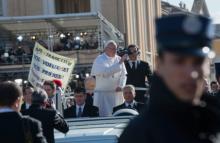
VATICAN CITY — Pope Francis issued a powerful call for the protection of the environment and of society’s most vulnerable during his formal installation Mass at the Vatican, while qualifying his papal power as a “service” to the church and to humanity.
The pope on Tuesday celebrated a solemn Mass in St. Peter’s Square in front of an estimated 200,000 people, as well as political and religious leaders from all over the world.
During the Mass, Francis received the symbols of his papal authority over the world’s 1.2 billion Roman Catholics: the pallium, a lamb’s wool stole that recalls Jesus as the Good Shepherd, and the “ring of the fisherman.”
In keeping with the low-key style that has been the hallmark of his pontificate so far, Francis presided over a somewhat simpler, and definitely shorter, rite than the one that marked the start of Benedict XVI’s reign in 2005.
Francis was slowly driven around a sun-drenched St. Peter’s Square in an open-top car, shunning the bulletproof, air-conditioned popemobile preferred by his predecessors. At one point, he asked to stop the car and got out to bless a disabled person.
In his homily, delivered in Italian, Francis described the church’s mission as “respecting each of God’s creatures and respecting the environment in which we live.”
ONCE UPON A TIME, long before there were birth certificates or Social Security numbers, there were immigrants. If you are or have been an immigrant without documents, you may think life must have been easier then, that you would never be afraid of getting found out and deported.
But life was not easier—at least not in the first century C.E., in the five mostly rural Roman provinces in what is now Turkey. Especially if you were a follower of Jesus.
As an immigrant, you are called by one of two names in Greek, the trade language of the time. You are a paroikos if you had fled or been forced from your native community for any personal, economic, or political reason and were trying to eke out a living in a foreign land. Oikos refers to "house" or the economic structure of the extended household in which native people lived. Para means "alongside of." In other words, you are "away from home," a resident alien on the edges of ordinary life.
Consequently, you have fewer rights than full citizens. Never able to own land, you are a sharecropper, a craftsperson, or perhaps a small trader or shopkeeper. You may have been driven off your land by high taxes you could not pay, or perhaps you are a second son and will not inherit your father's land. You may be the wife or daughter of such a man, or a widow driven to support yourself and your children. You have legal restrictions regarding intermarriage, commerce, and succession of property. You have no political rights, such as voting in public assemblies or joining in guilds. Unlike citizens, if you are charged with a crime, you can be tortured.
The Nation reports that the fiscal cliff deal is a "mixed bag" for the poor. On the positive side:
The biggest takeaway, perhaps, was for the unemployed: they saw a one-year extension in federal unemployment benefits. Another very important piece of the deal was a five-year extension of crucial tax breaks: the Earned Income Tax Credit, Child Tax Credit and the American Opportunity Tax Credit.
On the negative side:
The payroll tax holiday was allowed to expire. The double whammy of trying to get Congress to raise the debt ceiling while also trying to keep it from torching the social safety net does not bode well for the poor.
Read more here.

I learned from an article in The Sun magazine that the word eccentric comes from a Greek word that describes objects in space that don't revolve around the earth. The Greeks in ancient times saw Venus, Mercury, Mars, Jupiter, and Saturn and observed that they wandered through the sky moving in a seemingly aimless way. They called these planets asteres planetai (wandering stars). The planets were not, however, wandering. They were revolving around the sun. It was the finite view of human beings that made them seem like wanderers.
Human eccentrics move in a seemingly aimless way, too. Their movements make them seem like wanderers to other human beings with finite views. They don't wander aimlessly, though. They revolve around a different center.
On Monday, three West Virginia bishops joined by families and advocates pressed the state's politicians to protect poor and working families — or, in other words, the “least of these” — during budget battles in Washington.
The budget and tax negotiations are complex and important. They're driven in large part by the expiring Bush tax cuts and steep across-the-board spending cuts set to kick in if Congress does not act.
Congressional Republicans have been demanding deep spending cuts in programs, including Medicaid and Social Security. They've also defended tax cuts for the wealthy. A number of religious figures say those priorities are backwards.
Felicia Thomas, 24, director at Fort Hill Child Development Center, spoke at the meeting. Thomas is a single mother of a five year old little girl. Federal programs like Earned Income Tax Credit and child care subsidies have allowed Thomas not only to pursue her dreams of a better future, but also to keep the lights on and the fridge stocked.

"NO ONE SPEAKING by the Spirit of God ever says, 'Let Jesus be cursed!'" insists Paul in his first letter to Corinth (12:3). Driving through Corinth not long ago, I found myself musing about the extraordinary spirituality that had grown up in the church he was trying to straighten out. Apparently, ecstatic worshippers caught up in charismatic excitement on the Lord's day were actually known to blurt out these shocking words: "Anathema, Jesus!" In a very brief period, the church there had come up with a mutation of the gospel in which only the cosmic, exalted savior, known through speaking in tongues and exciting miracles, mattered. The earthly person of Jesus of Nazareth had been a mere husk to be shucked off, they said. Only the Spirit-giving celestial Lord mattered. Jesus be damned! His teachings back in Galilee signified nothing; now they could concentrate on the prophecies that came hot and strong from heaven through the church's prophets—a belief that left plenty of room for all sorts of wild ethical "experiments," to put it mildly.
Well, no one actually utters "Let Jesus be cursed" out loud anymore, but, in a more subtle way, how prevalent is a pseudo-spirituality that relativizes the radical teaching of the reign of God! These readings bring us back under the authority of Jesus' witness in Galilee—and the reality that there is no Spirit, and no spirituality, except the one we receive as the driving energy to bring good news to the poor.

Speaking of the widow’s offering, Jesus says: “Truly, I tell you, this poor widow has put in more than all those who are contributing to the treasury. For all of them have contributed out of their abundance; but she out of her poverty has put in everything she had, all she had to live on.” (Mark 12:41-44)
Today, families across America will gather round tables full of food. They will hold hands and pray. They will give thanks for the blessings that have come to each member over the past year. Some of these families’ tables will be covered with turkeys, stuffing, cranberry sauce, and yams; symbols of abundant blessing. Others will give thanks over Hillshire Farms sliced turkey sandwiches on Wonder bread; symbols of blessing in the midst of hard slog of poverty. Though their tables are bare, their thanks offerings are full of power. For, like the widow’s offering, Jesus reveres the offerings of the poor.
This Thanksgiving, as your family holds hands and give thanks and as your church packs Thanksgiving dinner baskets, and this Christmas season churches prepare gift baskets for those Jesus called “The Least of these” (Matthew 25:40) we at Sojourners ask you to do one more thing: Take five minutes and handwrite a simple letter to your member of Congress.
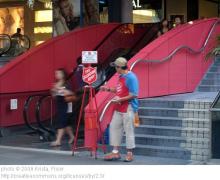
A lot of ink, pixels, and air have been used on the potential effects of the so-called “fiscal cliff.” While many experts say that “cliff” is a misnomer (it’s more of long slope in the wrong direction), there is at least broad agreement that it’s not the right direction for the country’s long-term health.
We’ve heard a lot about the potential effects on Wall Street, our nation’s credit rating, and even the military. But little has been said about the devastating consequences for our nation and the world’s poorest and most vulnerable people — or for the charities and non-profits that serve them.
This week, the Circle of Protection, released an open letter to the president and Congress with a simple message: during the holidays, please “advance policies that protect the poor — not ones that make them poorer.”
Jim Wallis, President and CEO of Sojourners, met with President Barack Obama and other key officials at the White House on Friday to discuss the fiscal cliff, and urge a fair budget deal that does not harm the poor and vulnarable. After the meeting, he sat down with Rev. Al Sharpton on MSNBC's Politics Nation to talk about the results of the meeting.
Visit NBCNews.com for breaking news, world news, and news about the economy
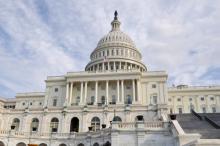
BALTIMORE — As Congress embarks on high-stakes budget negotiations to avoid the “fiscal cliff,” leaders of the U.S. Conference of Catholic Bishops are warning elected officials not to target programs for the poor and instead raise taxes and reduce defense spending.
“In developing frameworks for future budgets, Congress should not rely on disproportionate cuts in essential services to poor persons,” Bishop Stephen E. Blaire of Stockton, Calif., and Bishop Richard E. Pates of Des Moines, Iowa, wrote in a Nov. 13 letter to the House and Senate.
Blaire and Pates chair the bishops' committees on domestic and international issues, and the letter asks that “poverty-focused international assistance programs” also be spared because they are a small slice of the budget pie, are effective and enjoy bipartisan support.